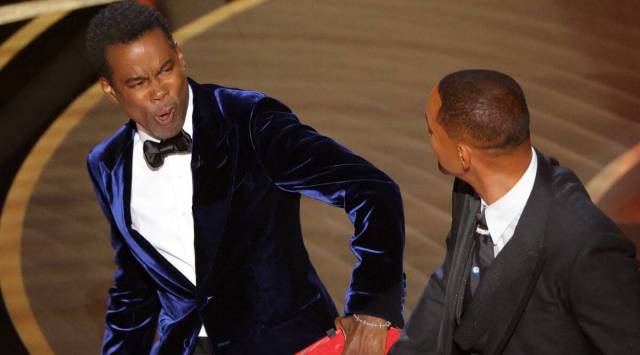
The best comedians are magicians, and their jokes — whether anecdotal, provocative, observational, angry or just clever turns of phrase – are like magic tricks. A magician’s trick consists of three parts, at least according to Michael Caine in The Prestige (2006): The first is the Pledge, when you are shown something ordinary – say, a rabbit. Then comes the Turn, and the bunny disappears into a top hat, part awe-inspiring, part scary. Finally, with the Prestige, the mammal is brought back, and all is well with the world – things go back to normal.
Chris Rock’s live stand-up special on Netflix certainly made a Pledge and took many Turns. But what is most significant about Selective Outrage is that there was no going back to “normal” at the end of the hour: Rock points out the growing hypocrisy around virtue signalling, the moral narcolepsy of being “woke” and the cowardice of a bully who was given a standing ovation minutes after he slapped the comedian at an awards show. And, best of all, Rock does this while sticking to his calling – there are punchlines that pull no punches.
Selective Outrage explores themes that Rock has touched on in earlier specials and interviews. He loves his daughters, but he doesn’t like them, he says, “because they’re spoilt, rich kids… I may be rich, but I identify as poor”. He is as incisive as ever while making fun of corporations like Apple, which are all for politically correct messaging, while selling products made in the worst, most dangerous working conditions. Or when he points to the Capitol riots, and how white people are trying to overthrow themselves – “take the country back from who? They still run s**t”.
For the first three-quarters of the performance, though, the audience is left guessing about whether one of the greats will shy away from the topic the world is most curious about. Rock hints at the elephant in the room throughout the show, especially when he talks about “fake” victimhood, the exaggerated sense of persecution that has become a mark of the privileged. Even if he hadn’t addressed being assaulted by Will Smith on one of the most watched global television events a year ago, the special would have held up.
Because he is okay calling Meghan Markle’s poor-little-rich-girl persona what it is. He is willing to say that not all inequalities are equal, and that going through the world calling every bad experience a traumatic one is a bit much. His job allows him not to pretend to be indulgent of ridiculousness as the rest of us are — at workplaces, homes and family and alumni WhatsApp groups. He can say that putting up with the righteous certainty of some people all the time is just bloody annoying. And that it can distract from things that really deserve our anger, from people who are genuine victims.
Unlike celebrities and politicians who try to whitewash the most controversial, hurtful or even embarrassing episodes from their past, who pass on “approved” questionnaires, there is no hard place Rock did not meet head on. He talked of the assault. He pulled no punches about Jada Pinkett-Smith, or the fact that her husband was the butt of jokes from rappers, athletes and boxers. Or the betrayal he felt when an actor he admired, who he had never taken cheap shots at, hit him. That the slap still “f***ing hurts,” he says. As does the fact that Will Smith chose to hit the one person he could physically overpower while the latter was just doing his job — not the rappers who could thrash him, or athletes who could pummel him with ease. And Rock still ended a hurt, angry tirade with a joke. That’s a professional.
It is easy to see the Smith-Rock episode as just grist for the media mill, obsessed with pageviews, shares and likes. Or an irrelevant celebrity feud in the far-away heights of Hollywood Hills. But that would be a mistake. The attack on Rock was one on free speech, not a feud between Kardashians. It has resonance all the way in India because here, like in so many places, we censor ourselves – for fear of the tweet that can destroy reputations and livelihoods, or even just being branded “problematic”.
If nothing else, Rock gave us the bedrock from which we can build a fantasy of the power of free speech – and enjoy, vicariously, the most ridiculous and dangerous forms of selective outrage being taken down. And the dream-come-true that when it comes down to it, an artist at the top of his game can take being a victim of assault, and beat his perpetrator with the truth he wrings out of the experience. By doing so, he ensures he will never be a victim. For anyone who was ever bullied and beaten, Rock just became a hero.
aakash.joshi@expressindia.com